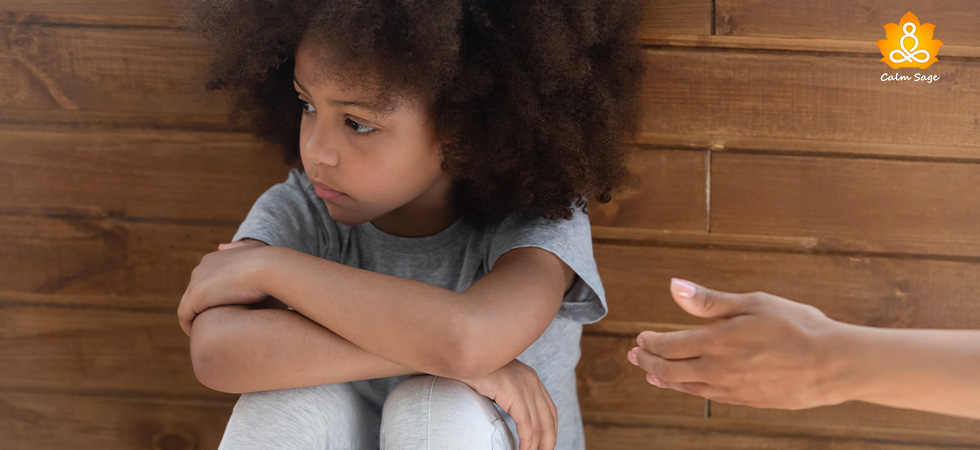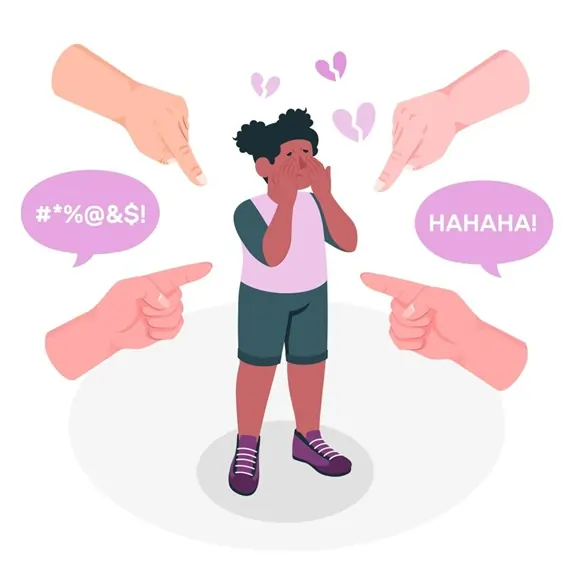Childhood Rejection: Psychological & Physical Effects and How to Heal

Children barely understand the emotion behind rejection or the experience itself. For children, no matter how perceptive, rejection means that it’s their fault and not the adult’s, which is far from the truth.
When a primary caretaker or a parent rejects the child, it can show physical distancing from the child. It can mean no hugs, physical affection, hand-holding, or other supportive gestures when growing up. These signs of rejection can also be emotional, such as an absence of a comforting figure, no encouraging words, no empathy, or no emotional intimacy.
When a child grows up with rejection, it can leave short-term and long-term effects on their well-being and development. In many cases, it can lead to a lack of emotional intimacy in adulthood, low self-esteem growing up, and developing anxiety.
If left unaddressed and untreated, rejection trauma from childhood can severely impact one’s mental and emotional development. Let’s learn the effects of rejection in childhood and how to heal from it.
Effects Of Rejection In Childhood

As I said, rejection in childhood can have short-term and long-term effects. Let’s take a look at them each below:
Short-Term Effects Of Rejection
Children are sensitive and self-centered because they are not yet perceptive of the emotions of others. Without substantial proof or experience, they may begin to think (and eventually believe) that the rejection is somehow their fault.
This kind of reaction can leave a short-term impact on their well-being, such as:
- Emotional pain
- Rejection sensitivity
- Mental exhaustion
- Sadness
- Confusion
- Loneliness
- Socially withdrawn
- Poor performance
- Rebelling or acting out
In some cases, this rejection trauma can lead to behaviors such as attention-seeking. Physical effects of rejection in childhood can lead to:
- Isolation
- Depression
- Self-reliance
- Guarded conversations
- Rejecting physical affection
- Emotional outbursts
On the other hand, emotional rejection can lead to:
- Repressing emotions or emotional constipation
- Disliking vulnerability in others
- Being unkind to people who express emotions
- Childhood depression or anxiety
- Loneliness
- People-pleasing
- Emotional avoidance
- Low self-esteem
- Hard time managing emotions
- Avoidant coping behaviors such as substance misuse, etc
- Developing an insecure attachment style
More often than not, these effects can overlap one another. For example, psychological effects can lead to physical impacts, which can lead to emotional effects. And so on.
Long-Term Effects Of Rejection
When you enter adulthood with rejection trauma, it can often suggest your relationship experiences with your parents and your attachment styles. When you grow up with rejection in childhood, you may grow up to experience rejection, accept yourself, struggle with self-doubt, low self-worth, and self-hate.
This can carry on in your other adult relationships as well. Often, when you grow up with an anxious or avoidant attachment style, you may develop the following:
- A fear of commitment
- A fear of intimacy
- Hyper-independence
- Emotional unavailability
- Emotional rejection
- Dismissing others’ emotions
- Trust issues
Other than this, you may also develop a strange belief that makes you think you are happy alone than being in a relationship with someone. These attachment styles can also manifest as:
- Jealousy
- Trouble being alone
- Neediness in relationships
- A fear of abandonment
- Needing constant reassurance
- Feeling criticized when you don’t get an assurance
Rejection in childhood can also manifest in adulthood as:
- Poor acceptance of social cues
- Poor communication skills
- Interpersonal conflict
- Reverting to childhood coping when distressed
- Rejection sensitivity
Physical effects of rejection in childhood when it comes to long-term effects can include:
- Uncomfortable with physical affection
- Reluctance to accept physical touch
- Aversion to physical displays of affection
- Feeling anger at unrequested physical affection
- Sexual dysfunction
- Fear of touching or being touched by others
How Can You Heal From Rejection Trauma?
With the right help and techniques, you can recover and heal from rejection trauma. Here are some ways to get you started:
1. Self-Acceptance
If your parents or primary caregiver failed to show acceptance, then you can do so for yourself as you enter adulthood. This self-acceptance or self-parenting can involve using positive self-talk and giving yourself the affection and support you missed as a child. Work on fulfilling the emotional and physical needs from your childhood that your parent figure failed at giving.
For example; You can try telling yourself encouraging phrases such as:
“You’re so brave for trying something new”
“You’re doing your best, keep going”
“You are loved and supported, always”
2. Recognizing Rejection Habits
Here, you need to identify your rejection habits or negative self-talk that you can rephrase or label as false. Psychologists recommend using a journal to understand how negative self-talk affects your health and mindset. Once you notice a rejection thought, write them down and ask yourself, where are they coming from? For every negative thought, counter it with a positive one.
3. Building Healthy And Loving Relationships
You can work on building healthy and loving relationships to heal from rejection trauma. Find people who you find respectful, caring, trustworthy, and empathetic. Building relationships with these people can help you recover from rejection in childhood. When you actively seek out healthy and positive relationships, you replace the lack of affection from your childhood and replace it with what you failed to receive in your childhood.
The effects of rejection in childhood can leave long-lasting scars – emotional, psychological, and physical. Rejection trauma can cause you to develop a fear of emotional and physical intimacy, trust issues, anxiety, depression, and other negative behaviors.
With the right experiences in adulthood, you can replace your negative childhood experiences. It is recommended that you seek professional help and guidance on overcoming rejection challenges in childhood.
With the right support and help, you can heal from rejection trauma, form healthy relationships, and become a good role model for your children in the future.
I hope this blog helped you understand the effects of rejection in childhood and how to heal from it. Share your thoughts with us in the comments section below.
Take Care!




















